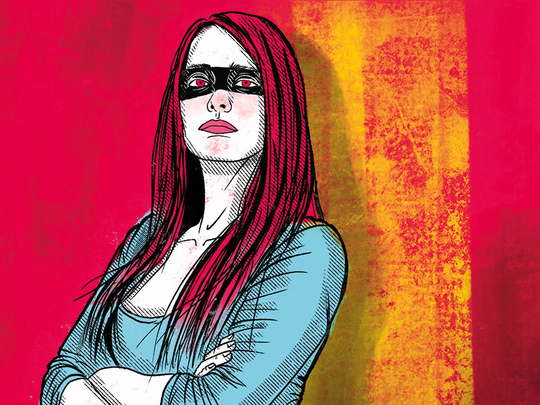
It’s a truth universally acknowledged that mothers are superheroes, but when it comes to cinema, that role is usually reserved for fathers. Whether it’s Bryan Mills and his special set of skills in Taken, John McClane yippee ki-yaying in Die Hard, or John Matrix eating Green Berets for breakfast in Commando, there is no shortage of dads saving their children.
That’s not to say that there haven’t been action movies led by mothers over the years: The Long Kiss Goodnight’s Charly Baltimore is one of my favourite action heroines. She and Terminator 2: Judgment Day’s Sarah Connor and Beatrix Kiddo from Kill Bill Vol. 1 and 2 are prime examples of mums taking names to save their offspring. These three will go down in cinematic history as some of the most empowering female icons.
However, female leads are still vastly outnumbered by male ones in film.
According to research conducted by the Centre for the Study of Women in Television and Film last year, just 17 per cent of female protagonists were likely to appear in an action film compared with 38 per cent of male, showing there is still a clear gender bias in Hollywood. That is despite the fact that female-led action films such as Wonder Woman and the new Star Wars franchise have earned critical and commercial acclaim. But that was last year.
2018 is set to be an empowering year for women, in Hollywood and the wider world — and that includes the number of mothers stepping up to action hero roles. The first one to look forward is Breaking In, starring Gabrielle Union (in cinemas this Friday).
The actor, known more for her supporting roles in Bring it On, Bad Boys II and Think Like A Man, takes the lead as Shaun Russell, a mother of two who battles four violent robbers who have taken her children hostage in her late father’s house. “[She’s] a mum with no special set of skills, she’s not a Navy Seal or a kung fu master,” Union said. “She’s a mum with wit and a love of her kids that creates the perfect storm to create a buzz.”
The “perfect storm” is certainly an apt descriptor for Jennifer Garner’s upcoming role in Peppermint. Garner has a history of playing action heroines: Sydney Bristow in JJ Abrams’ spy series Alias is a legend of the small screen, and Elektra, whose eponymous movie may not have been up to the same critical standards as Wonder Woman, but was the first Marvel heroine to lead a film. Now she’s returned to the action genre with Taken director Pierre Morel, to play a mother on a mission of bloodthirsty vengeance after a drug cartel murders her family in cold blood. “The stakes are never higher than when your family is involved,” Garner said at CinemaCon. “So, while I’ve fought a lot of bad guys in my day, this is the biggest combination of high drama and action I’ve ever done.”
Peppermint is set for release in September, but before that, The Incredibles 2 is heading to the big screen and offers a more modern reflection of today’s changing gender roles at home.
The original film had Bob/Mr Incredible moonlighting as a crime-fighter while his wife, Helen/Elastigirl, stayed at home with the children. In the sequel she leads the fight against crime and is the campaign face for the return of “supers”, while her husband plays the stay-at-home dad. “We need to change people’s perception about superheroes and Elastigirl is our best play,” Bob Odenkirk’s Winston Deavor says in the trailer, and his words can be applied in real life, too. For too long the perception of mothers has kept them relegated to the domestic sphere, especially on film, and often seen them in need of a man’s help. But Hollywood is at last demonstrating that mums are capable, vibrant and able to get the job done on their own.
Mark Millar knows this too. He gave us the ultimate dad hero Big Daddy in writing Kick-Ass, but has now rebooted his comic book series with single mother of two and army veteran, Patience Lee, taking over the vigilante mantle. Millar is also planning on bringing Patience to life on Netflix, with his sights set on Tessa Thompson in the role.
“I just felt, creatively, that we’re at peak white 30-year-old male,” Millar told me. “I’ve nothing against white 30-year-old males: I used to be one. I just felt I’ve heard that story a million different ways, and as an audience, we’re ready for a new story.”
Amen to that.
— Guardian News & Media Ltd
Hanna Flint is a freelance writer and editor.








